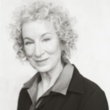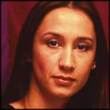On beauty
Description
Howard Belsey, a Rembrandt scholar who doesn't like Rembrandt, is an Englishman abroad and a long-suffering professor at Wellington, a liberal New England arts college. He has been married for thirty years to Kiki, an American woman who no longer resembles the sexy activist she once was. Their three children passionately pursue their own paths: Levi quests after authentic blackness, Zora believes that intellectuals can redeem everybody, and Jerome struggles to be a believer in a family of strict atheists. Faced with the oppressive enthusiasms of his children, Howard feels that the first two acts of his life are over and he has no clear plans for the finale. Or the encore.
Then Jerome, Howard's older son, falls for Victoria, the stunning daughter of the right-wing icon Monty Kipps, and the two families find themselves thrown together in a beautiful corner of America, enacting a cultural and personal war against the background of real wars that they barely register. An infidelity, a death, and a legacy set in motion a chain of events that sees all parties forced to examine the unarticulated assumptions which underpin their lives. How do you choose the work on which to spend your life? Why do you love the people you love? Do you really believe what you claim to? And what is the beautiful thing, and how far will you go to get it?
Set on both sides of the Atlantic, Zadie Smith's third novel is a brilliant analysis of family life, the institution of marriage, intersections of the personal and political, and an honest look at people's deceptions. It is also, as you might expect, very funny indeed.
More Details
078628319
9780143037743
9780786283194
9781101218112
Table of Contents
From the Book
Similar Titles From NoveList
Similar Authors From NoveList
Published Reviews
Booklist Review
Smith's first novel, White Teeth0 (2000), won prizes and comparisons to Dickens and E. M. Forster. In her current novel, she even uses a couple of plot devices from Howard's End0 to brilliant effect. The Belsey family is multicultural as well as multinational. Howard is English, teaching art history at liberal Wellington College near Boston. His wife, Kiki, is from Florida, and as practical as her husband is intellectual. Although they love each other dearly, Howard's waning career and wandering eye have caused a strain. Their children follow their own paths: Jerome is a Christian; Zora is a socially concerned intellectual; and Levi is trying to be a black man of the streets. When Jerome falls in love with the daughter of Howard's archrival, Monty Kipps, the two families are thrown together in a personal and cultural battle. Although the romance sours, Howard and Monty's rivalry kicks up a notch, while Kiki and Mrs. Kipps develop an unlikely bond. Intermingled with the analysis of family and marriage are commentaries on affirmative action, liberal versus conservative, and prejudices in many forms. This is a boisterous, funny, poignant, and erudite novel that should firmly establish Smith as a literary force of nature. --Elizabeth Dickie Copyright 2005 Booklist
Publisher's Weekly Review
Truly human, fully ourselves, beautiful," muses a character in Smith's third novel, an intrepid attempt to explore the sad stuff of adult life, 21st century-style: adultery, identity crises and emotional suffocation, interracial and intraracial global conflicts and religious zealotry. Like Smith's smash debut, White Teeth (2000), this work gathers narrative steam from the clash between two radically different families, with a plot that explicitly parallels Howards End. A failed romance between the evangelical son of the messy, liberal Belseys-Howard is Anglo-WASP and Kiki African-American-and the gorgeous daughter of the staid, conservative, Anglo-Caribbean Kipps leads to a soulful, transatlantic understanding between the families' matriarchs, Kiki and Carlene, even as their respective husbands, the art professors Howard and Monty, amass mat?riel for the culture wars at a fictional Massachusetts university. Meanwhile, Howard and Kiki must deal with Howard's extramarital affair, as their other son, Levi, moves from religion to politics. Everyone theorizes about art, and everyone searches for connections, sexual and otherwise. A very simple but very funny joke-that Howard, a Rembrandt scholar, hates Rembrandt-allows Smith to discourse majestically on some of the master's finest paintings. The articulate portrait of daughter Zora depicts the struggle to incorporate intellectual values into action. The elaborate Forster homage, as well as a too-neat alignment between characters, concerns and foils, threaten Smith's insightful probing of what makes life complicated (and beautiful), but those insights eventually add up. "There is such a shelter in each other," Carlene tells Kiki; it's a take on Forster's "Only Connect-," but one that finds new substance here. Agent, Georgia Garett at A.P. Watt. (Sept. 13) (c) Copyright PWxyz, LLC. All rights reserved
School Library Journal Review
Adult/High School-A hilarious comedy of manners in the tradition of Austen, Wharton, and Forster, to whom the author pays homage. She tackles class, race, and gender with acerbic wit and a wise eye for the complexities of modern life, in a 21st-century update of Howard's End. Beauty opens as hapless art historian Howard Belsey, a transplanted Englishman married to an African-American woman, returns to London to prevent his son from marrying the daughter of his academic rival, Monty Kipps. Jerome has fallen in love not just with Victoria, but with the entire family, whose Trinidadian, right-wing roots are a sharp contrast to the freewheeling liberalism of his own family. In the meantime, Belsey's other children, social activist Zora and Levi, who speaks only street slang and fancies himself from the 'hood, are each seeking the commitments and identities that will define their own lives. What results is a vivid portrait of marriage, family, the conflict between the political and the personal, and people's eternal affinity for self-deception. Teens will enjoy this romp through the labyrinth of relationships that help a family mature and find its beautiful moments.-Pat Bangs, Fairfax County Public Library, VA (c) Copyright 2010. Library Journals LLC, a wholly owned subsidiary of Media Source, Inc. No redistribution permitted.
Library Journal Review
Englishman Howard Belsey, a disgruntled Rembrandt scholar, lives in New England with his faded-activist wife and their three disparate children. Large issues come into play when one son falls for the daughter of a rabid right-winger. (c) Copyright 2010. Library Journals LLC, a wholly owned subsidiary of Media Source, Inc. No redistribution permitted.
Kirkus Book Review
An academic comedy of multicultural manners finds Smith recapturing the sparkle of White Teeth (2000). Following her sophomore slump with The Autograph Man (2002), the British author returns to biting, frequently hilarious form with a novel that concerns two professors who are intellectual enemies but whose families become intertwined. Radical theorist Howard Belsey, a British art historian married to the African-American Kiki, detests the cultural conservatism of Monty Kipps, a Caribbean scholar based in England. Kipps apparently has the best of their rivalry, having raised his profile with a well-received book on Rembrandt that stands in stark contrast to Belsey's attempts to complete a counter-argument manuscript. Through a series of unlikely coincidences, Belsey's son becomes engaged to Kipps's irresistibly beautiful daughter, Kipps accepts an invitation to become guest lecturer at the Massachusetts college where Belsey is struggling for tenure and the wives of the two discover that they are soul mates. As Smith details the generation-spanning interactions of various minorities within a predominantly white, liberal community, she finds shades of meaning in shades of skin tone, probing the prickly issues of affirmative action, race relations and cultural imperialism while skewering the political correctness that masks emotional honesty. As the author acknowledges in an afterword, her story's structure pays homage to E.M. Forster's Howards End, recasting the epistolary beginning of that book as a series of e-mails, while incorporating all sorts of contemporary cultural allusions to hip-hop, academic theory and the political climate in the wake of 9/11. Though much of the plot concerns the hypocrisies and occasional buffoonery of the professors, along with the romantic entanglements and social crises of their offspring, the heart and soul of the novel is Kiki Belsey, who must decide whether to continue to nurture a husband who doesn't deserve her. While some characters receive scant development, the personality that shines through the narrative most strongly is that of Smith. In this sharp, engaging satire, beauty's only skin-deep, but funny cuts to the bone. Copyright ©Kirkus Reviews, used with permission.
Booklist Reviews
Smith's first novel, White Teeth (2000), won prizes and comparisons to Dickens and E. M. Forster. In her current novel, she even uses a couple of plot devices from Howard's End to brilliant effect. The Belsey family is multicultural as well as multinational. Howard is English, teaching art history at liberal Wellington College near Boston. His wife, Kiki, is from Florida, and as practical as her husband is intellectual. Although they love each other dearly, Howard's waning career and wandering eye have caused a strain. Their children follow their own paths: Jerome is a Christian; Zora is a socially concerned intellectual; and Levi is trying to be a black man of the streets. When Jerome falls in love with the daughter of Howard's archrival, Monty Kipps, the two families are thrown together in a personal and cultural battle. Although the romance sours, Howard and Monty's rivalry kicks up a notch, while Kiki and Mrs. Kipps develop an unlikely bond. Intermingled with the analysis of family and marriage are commentaries on affirmative action, liberal versus conservative, and prejudices in many forms. This is a boisterous, funny, poignant, and erudite novel that should firmly establish Smith as a literary force of nature. ((Reviewed August 2005)) Copyright 2005 Booklist Reviews.
Library Journal Reviews
Englishman Howard Belsey, a disgruntled Rembrandt scholar, lives in New England with his faded-activist wife and their three disparate children. Large issues come into play when one son falls for the daughter of a rabid right-winger. Copyright 2005 Reed Business Information.
Library Journal Reviews
Issues of beauty in art and life indeed ruffle the surface of this splendid work from the author of White Teeth. Englishman Howard Belsey teaches art history at a small New England college called Wellington; brisk daughter Zora wants to study with the celebrity poet on faculty, who is more than casually acquainted with Howard; and sensitive son Jerome's idea of healing a family rift is to take everyone to a performance of Mozart's requiem. Even rebellious Levi raps away; and Kiki, Howard's African American wife, once an activist, is now hugely overweight and struggling with her sense of self. But perhaps an even better title would have been "On Love," because it is the ties binding this family-and those coming apart-that really matter. Central to the action is both Howard's unfortunate fling and Jerome's summer adventure in London, when he falls briefly in love with the daughter of arch-conservative Trinidadian Monty Kipps, whom Howard regards as an enemy. When Monty ends up at Wellington that fall, the family map gets remade. With fully realized characters and a kaleidoscope of provocative issues, Smith has created a world you can truly enter. Highly recommended. [See Prepub Alert, LJ 5/15/05.]-Barbara Hoffert, Library Journal Copyright 2005 Reed Business Information.
Publishers Weekly Reviews
Truly human, fully ourselves, beautiful," muses a character in Smith's third novel, an intrepid attempt to explore the sad stuff of adult life, 21st century-style: adultery, identity crises and emotional suffocation, interracial and intraracial global conflicts and religious zealotry. Like Smith's smash debut, White Teeth (2000), this work gathers narrative steam from the clash between two radically different families, with a plot that explicitly parallels Howards End. A failed romance between the evangelical son of the messy, liberal Belseys-Howard is Anglo-WASP and Kiki African-American-and the gorgeous daughter of the staid, conservative, Anglo-Caribbean Kipps leads to a soulful, transatlantic understanding between the families' matriarchs, Kiki and Carlene, even as their respective husbands, the art professors Howard and Monty, amass mat‚riel for the culture wars at a fictional Massachusetts university. Meanwhile, Howard and Kiki must deal with Howard's extramarital affair, as their other son, Levi, moves from religion to politics. Everyone theorizes about art, and everyone searches for connections, sexual and otherwise. A very simple but very funny joke-that Howard, a Rembrandt scholar, hates Rembrandt-allows Smith to discourse majestically on some of the master's finest paintings. The articulate portrait of daughter Zora depicts the struggle to incorporate intellectual values into action. The elaborate Forster homage, as well as a too-neat alignment between characters, concerns and foils, threaten Smith's insightful probing of what makes life complicated (and beautiful), but those insights eventually add up. "There is such a shelter in each other," Carlene tells Kiki; it's a take on Forster's "Only Connect-," but one that finds new substance here. Agent, Georgia Garett at A.P. Watt. (Sept. 13) Copyright 2005 Reed Business Information.
School Library Journal Reviews
Adult/High School -A hilarious comedy of manners in the tradition of Austen, Wharton, and Forster, to whom the author pays homage. She tackles class, race, and gender with acerbic wit and a wise eye for the complexities of modern life, in a 21st-century update of Howard’s End . Beauty opens as hapless art historian Howard Belsey, a transplanted Englishman married to an African-American woman, returns to London to prevent his son from marrying the daughter of his academic rival, Monty Kipps. Jerome has fallen in love not just with Victoria, but with the entire family, whose Trinidadian, right-wing roots are a sharp contrast to the freewheeling liberalism of his own family. In the meantime, Belsey’s other children, social activist Zora and Levi, who speaks only street slang and fancies himself from the ’hood, are each seeking the commitments and identities that will define their own lives. What results is a vivid portrait of marriage, family, the conflict between the political and the personal, and people’s eternal affinity for self-deception. Teens will enjoy this romp through the labyrinth of relationships that help a family mature and find its beautiful moments.-Pat Bangs, Fairfax County Public Library, VA
[Page 157]. Copyright 2006 Reed Business Information.



































